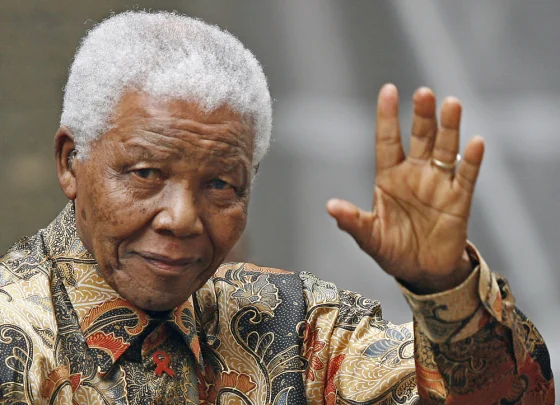President Cyril Ramaphosa encourages the nation to honour Mandela’s legacy daily by supporting those in need.
Commemorative activities across the country
South Africans came together on International Nelson Mandela Day to perform acts of kindness and community service. The day honours the former president, who would have turned 107 on Friday.
In 2009, the United Nations declared 18 July as International Nelson Mandela Day. It aims to recognise Mandela’s contributions to the fight against apartheid and racial injustice.
In KwaZulu-Natal, the provincial government handed 37 houses to families recovering from recent floods. These efforts aimed to support those still rebuilding their lives.
Meanwhile, in Kimberley, Northern Cape, the South African National Defence Force (SANDF) painted and cleaned the Seochoareng Old Age Home. They also distributed gifts to the residents.
“Dr Nelson Mandela inspired us to assist those who cannot help themselves,” said Colonel Barney Mothlabakwe, commander of the army support base in Kimberley. “We must respond when we see a need and offer support wherever possible.”
One resident of the home remarked, “Today feels very special, almost like Christmas.”
In addition, many South Africans spent 67 minutes doing good. This act symbolises the 67 years Mandela dedicated to public service.
Mandela’s enduring legacy
President Cyril Ramaphosa encouraged citizens to extend these efforts beyond Mandela Day. He urged people to support individuals and organisations in need throughout the year.
“As we commit to acts of kindness and support today, we are reminded that building a better society and world rests with all of us,” he wrote on X. “Let us stand by one another.”
Nelson Mandela was born on 18 July 1918 in Mvezo, a village in the Eastern Cape. He spent 27 years in prison for opposing the apartheid regime.
In 1994, he became South Africa’s first democratically elected president. Despite his long imprisonment, Mandela chose unity over revenge. He believed in reconciliation and worked to bring together the country’s diverse racial groups.
As a result, he gained global respect and received the Nobel Peace Prize in 1993.
Independent political economist Dale McKinley spoke to Anadolu about Mandela’s legacy. He described Mandela as a peacemaker who promoted justice and helped South Africa transition from apartheid to democracy.
Furthermore, McKinley said Mandela stood for inclusivity, tolerance, and constitutional progress.
